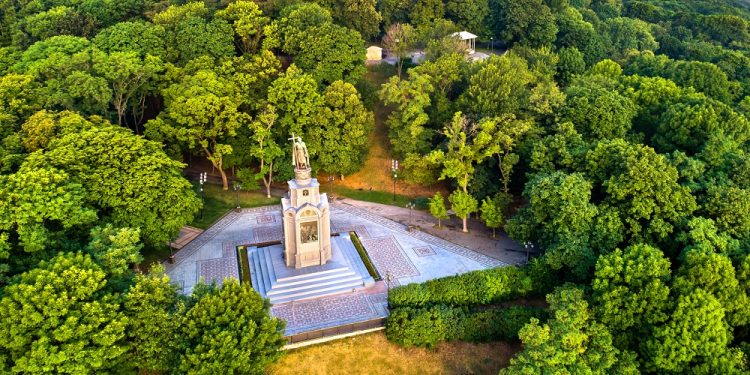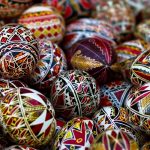
Saint Vladimir Day
Observed annually in July, Saint Vladimir Day is a religious holiday that is observed in the Eastern Orthodox Church, the Anglican Church, the Lutheran Church, and the Roman Catholic Church. It commemorates the birthday of Saint Vladimir I — the grandson of Saint Olga and the illegitimate son of Kyiv Grand Duke Sviatoslav and his mistress, Malusha.
Also known as Vladimir the Great, he was the ruler of Kievan Rus’ from 980 through 1015 and was the Grand Prince of Kiev and the Prince of Novgorod. Although he originally believed in Slavic paganism, he converted to Christianity in 988 and ended up Christianizing Kievan Rus’. He was canonized in the 13th century.
A Brief Biography of St. Vladimir
He was born in 958 to Sviatoslav I of Kyiv and his housekeeper Malusha. In Norse Sagas, Malusha was more than just a housekeeper, however. She was a prophetess who was brought from her cave to the palace so that she could predict the future. Her brother Dobrynya was Vladimir’s tutor and trusted advisor. However, this narrative is somewhat suspect, and some of it may not be true.
Vladimir was designated ruler of Novgorod by his father, but Kiev was pledged to Yaropolk, Sviatoslav’s legitimate son. When Sviatoslav was killed by the Pechenegs in 972, a war erupted between Yaropolk and his younger brother Oleg. In 977, Vladimir fled to Haakon Sigurdsson, the ruler of Norway, and collected as many Norse warriors as he could to recover Novgorod. The following year, he marched against Yaropolk.
On his way to Kyiv, Vladimir sent ambassadors to the Prince of Polotsk, Prince Rogvolod, and made an appeal for the hand of his daughter, Princess Rogneda. The princess refused to be engaged to the son of a bondswoman and was already betrothed to Yaropolk. This is when Vladimir attacked Polotsk, slew Prince Rogvolod, and took Rogneda by force, slaying both her parents in the process. Since Polotsk was a key strategic fortress on the way to Kyiv, it facilitated the taking of the city in 978. It was in Kyiv where he slew Yaropolk by treachery and was proclaimed Knyaz of Kievan Rus’.
In 987, Vladimir sent envoys to study the religions of neighboring nations so that he could find a faith he could make his own. After receiving reports about various religions, he then made some decisions about their suitability for him. He rejected Islam because he didn’t like its prohibition of pork and alcohol. He rejected Judaism because he felt that the loss of Jerusalem was a sign that God had abandoned them.
When Basil II asked Vladimir for assistance against revolts by Bardas Sklerus and Bardas Phokas, he made an agreement with him. In return for a marital tie, he agreed to send troops to aid Basil II. As part of the agreement, he also agreed to accept Christianity as his religion and to Christianize his people.
The Significance of Saint Vladimir Day
Although it’s hard to understand why a person with such a bloody history would become an important saint and be venerated in several different Christian traditions, it actually helps to underline an important narrative in Christianity. And this narrative is that even the worst sinners can seek forgiveness from God and be absolved of their sins.








